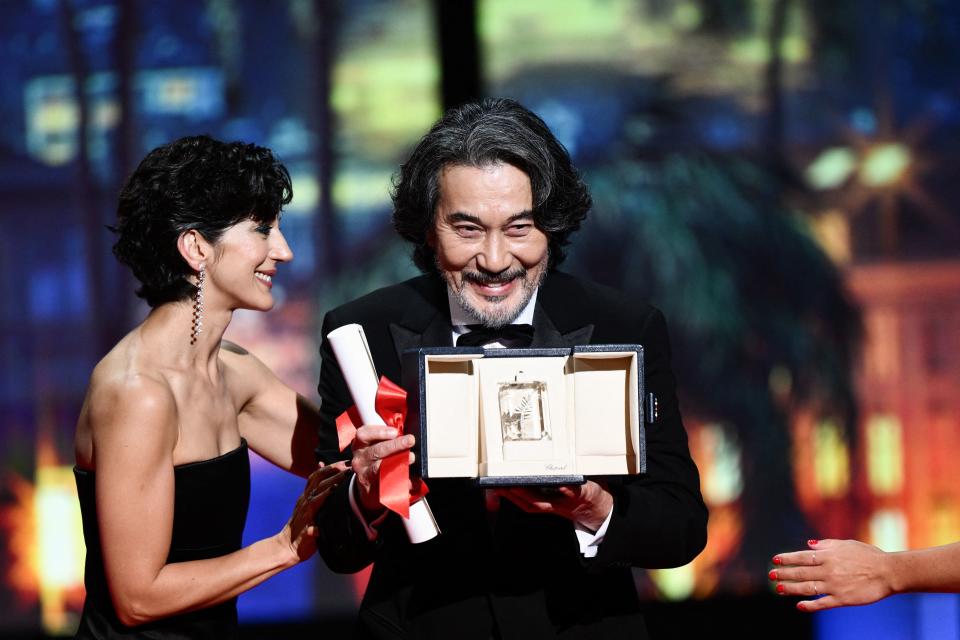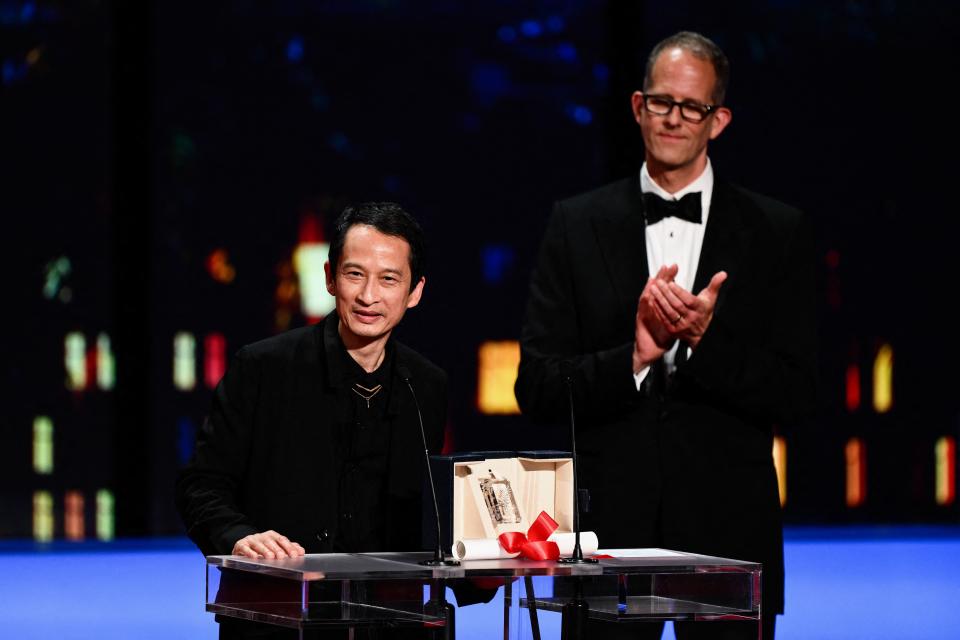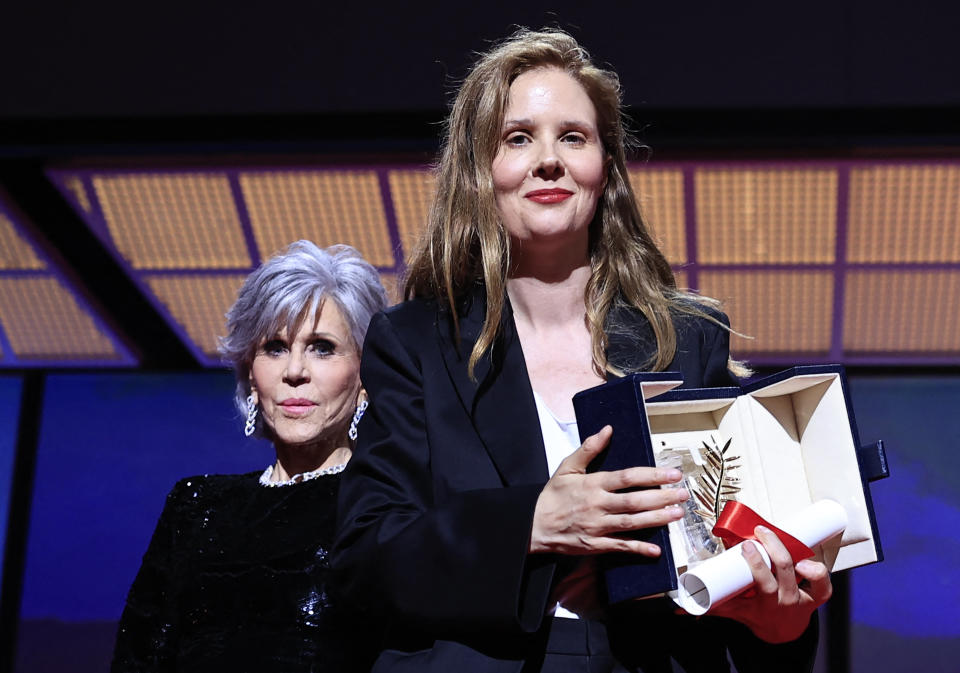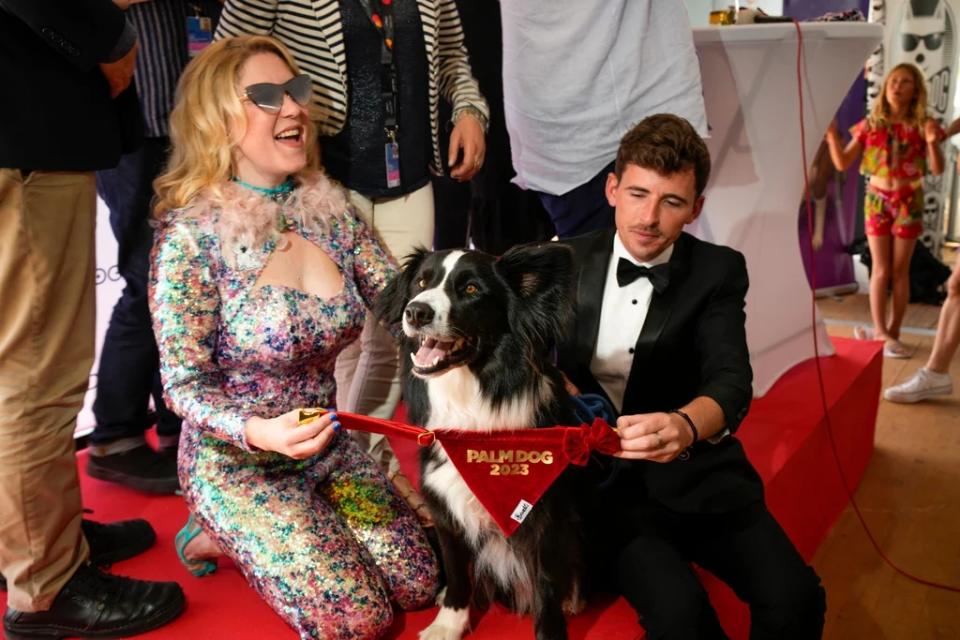The Jury Gets It (Mostly) Right In A Terrific Lineup Of Competition Films, But What Impact Will 2023 Cannes Film Festival Have On Oscar?


At least once, I can say the winners of the 2023 Cannes Film Festival competition are actually the right ones. Maybe not exactly in the order I would have put them, but still, out of the 21 movies competing, it is hard to argue about almost all of the choices made by the Ruben Ostlund-led jury that, among others, included Americans Brie Larson and Paul Dano. I said almost.
I was a little worried as I watched the red carpet arrivals to tonight’s ceremony at the Grand Lumiere Theatre, because you can always tell who is getting a prize and who isn’t by who is actually showing up. The fest’s Thierry Fremaux gets the list late from the jury and then informs those who may be getting an award that it would be wise to show up.
More from Deadline
When I saw Turkish director Nuri Bilge Ceylan very prominently photographed, I thought, “Oh no. Not him again.” After submitting over the years to his deadly slow films, most of which somehow won a prize at Cannes (he has a director, two Grand Prix, and a Palme d’Or), I vowed “never again,” though I realize others see his works as masterpieces (viva le difference!).
So though I saw most of the films over the past 11 days, and personally reviewed 8 of them for Deadline, I purposely skipped his latest 3:17 opus, About Dry Grasses (a title that seems appropriate). Life is too short and his movies too long. In a bit of a shocker, his leading lady, Merve Dizdar, took the Best Actress award over the likes of incredible work from Sandra Huller, Julianne Moore, Natalie Portman, and Juliette Binoche, to name a few. She may well be deserving. But that meant nothing else for Ceylan, who actually seemed a little crestfallen when cameras caught him on screen in the audience after the Actress prize was announced. He knew that was it.

I couldn’t be more pleased about the others who won, though. The Actor award went to the wonderful Japanese star, Koji Yakusho, of Wm Wenders’ Perfect Days, a melancholic look about the ordinary days in the life of a Tokyo worker who cleans public toilets. A lowly job, yes, but a proud man whose life is to be celebrated like anyone elses, no matter what station. It was a great choice, although I also would have been happy with Josh O’Connor, acting completely in Italian, in Alice Rohrwacher’s wonderful La Chimera, which sadly was shut out after screening the same day as Perfect Days at the end of the festival. Her film’s omission was the biggest miss to me.

The screenplay award to Sakamoto Yuji for Hirokazu Kore-eda’s terrific Monster (the first competition film screened), was well-chosen and significant as the first script Kore-eda has not written for one of his films since the very first movie he made). I also enthusiastically applaud the Best Director prize going to Vietnamese director Tran Anh Hung for the sumptous French film, The Pot Au Feu, with superb work from Binoche and Benoit Magimel, and luscious cinematography of cooking so intense and prevalent it borders on the equivalent of a foodie porno. At its heart, it is a gorgeous love story set around two masters of the kitchen who are also very married. It melted my heart as much as the butter on screen. The director appropriately thanked “my wife and cook” in the audience.
Maybe my personal favorite of all the films this year was the irrepressible Finnish master Aki Kaurismaki’s Fallen Leaves, the story of a last-chance, star-crossed romance that won the Jury Prix (3rd Place). It also was among the most critically acclaimed at the fest, and I would not have complained if it finally brought this great director his long-deserved Palme d’Or, but so happy it was recognized.

For the Palme d’Or, it really clearly came down to two films, both instantly tipped to win it after their screenings. In the end though, another key favorite of mine, Jonathan Glazer’s flat-out brilliant The Zone Of Interest, a holocaust film from the POV of the German family of the Auschwitz commandant who lived in the lap of luxury and beauty just outside the gates of the Nazi’s most horrific death camp. Had it won the Palme, it would have continued the unprecedented run of A24 awards-wise this year (after Oscar success with Everything Everywhere All At Once, and The Whale). But instead, it settled for the Grand Prix (2nd place).

The Palme went for the third time to a woman, Justine Triet, and back to a French film with the courtroom drama, Anatomy Of A Fall, which starred German actress Sandra Huller, as did The Zone Of Interest, in a spectacular performance as a woman on trial accused of killing her husband. Although very dialogue-heavy, it is a riveting film that keeps you on edge for its entire two and a half hour running time. NEON has the film for North America at the very least, and continues its uncanny ability to somehow grab the eventuall Palme d’Or winner before it is even announced. They have now had the Palme winner four years in a row (!), with Parasite (which became only the second film to win both the Palme and Best Picture Oscar — the first being Marty in 1955) — Titane, The Triangle Of Sadness, and now, Anatomy Of A Fall. Deadline recently dubbed them, “The Palme d’Or whisperer.” I believe Anatomy Of A Fall may also be the first film to win both the Palme d’Or and the Palme Dog in the same year. No arguments about the latter honor going to the border collie costar of the film, Messi, who played Snoop, and who has a dramatic near-death moment that would be a triumph of acting for human or canine. Congratulations, Messi.


 Yahoo Autos
Yahoo Autos 